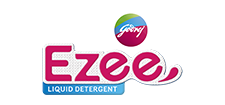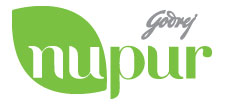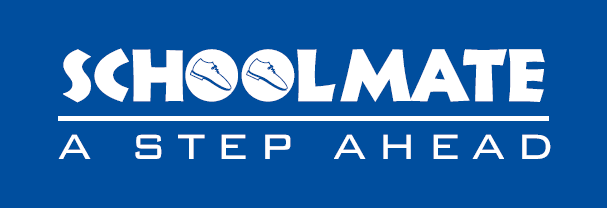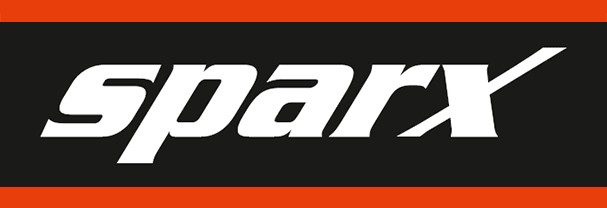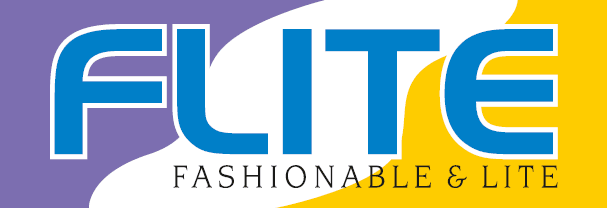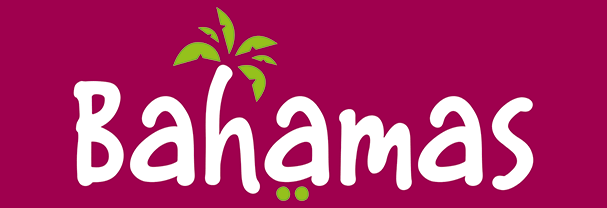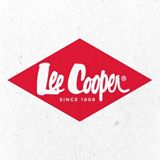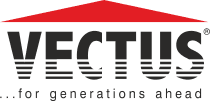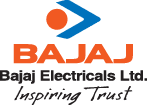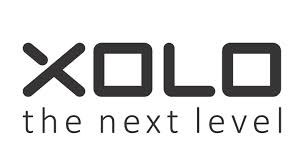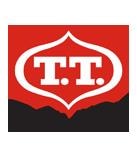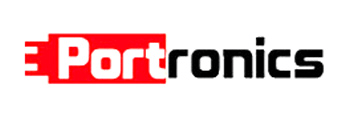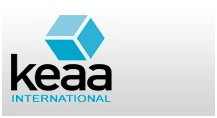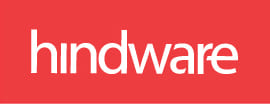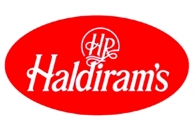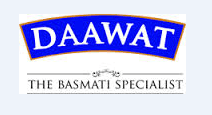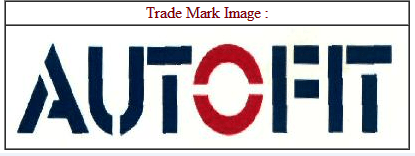Intellectual Property News
- DC Comics Seems to Think It Owns the Word “Super” for Superheroes
<p>IPNews® – DC Comics has recently filed a trademark opposition to prevent registration of the SUPER BABIES trademark. Here is the one twist: DC Comics does not use that trademark. Instead, DC Comics is claiming that due to its use of many trademarks that use the word SUPER in relation to super heroes, consumers are still... <a href="https://www.intellectualpropertynews.com/trademark-news/dc-comics-seems-to-think-it-owns-the-word-super-for-superheroes/">Continue Reading</a></p> - Musk Still Defends Twitter Trademark After Aggressive Rebrand
<p>IPNews® – As we all know, the popular social networking site formerly called Twitter is now called X. Regardless, X apparently doesn’t want to completely give up all of its Twitter related trademarks. In fact, it appears that X is willing to litigate over any unauthorized use of its old trademarks. To continue reading, click: Musk Still... <a href="https://www.intellectualpropertynews.com/trademark-news/musk-still-defends-twitter-trademark-after-aggressive-rebrand/">Continue Reading</a></p> - Facebook’s Meta Trademark Might Be in Danger
<p>IPNews® – Meta is slowly but surely clearing obstacles in its effort to register its META trademark. The latest hurdle is Metaformers, Inc., a Virginia corporation that filed a trademark opposition against the META trademark application. Metaformers claims it’s been using the “Meta” trademark since at least 2001, and as such the META trademark application... <a href="https://www.intellectualpropertynews.com/trademark-news/facebooks-meta-trademark-might-be-in-danger/">Continue Reading</a></p>
AG IP News
- USTR Releases 2024 Special 301 Report on Intellectual Property Protection and Enforcement
WASHINGTON – The Office of the United States Trade Representative (USTR) released its 2024 Special 301 Report on the adequacy and effectiveness of US trading partners’ protection and enforcement of intellectual property (IP) rights, according to the official website of the USTR. “Many of the issues highlighted in the Special 301 Report demand collaborative efforts from our allies and partners,” said Ambassador Katherine Tai. “Many of my counterparts share the goal of making sure that trade supports the interests of our people, and one of the most dangerous types of IP violations involves counterfeit goods that pose health and safety risks. In addition, the Biden-Harris Administration has continued its policy of declining to call out countries for exercising TRIPS flexibilities, including with respect to compulsory licenses, in a manner consistent with TRIPS obligations.” This annual report details USTR’s findings in a review of more than 100 trading partners after significant research and enhanced engagement with stakeholders. Key elements of the 2024 Special 301 Report include: • The report highlights progress made by our trading partners to resolve and address IP issues of concern to the United States: - USTR removed the Dominican Republic from the Watch List this year for significant progress on addressing concerns with IP enforcement and transparency. Dominican Republic agencies increased enforcement actions and interagency cooperation on combating signal piracy, improved resource allocation for agencies, made publicly available enforcement-related statistics, increased the number of specialized IP prosecutors, increased enforcement actions against counterfeit medicines, and worked with various U.S. agencies to receive training and technical assistance. The Dominican Republic has committed to continue taking enforcement actions to combat copyright infringement, including signal piracy, and to increase capacity through training and engagement with the United States. - USTR also removed Uzbekistan from the Watch List this year due to sustained progress on long-standing issues pertaining to IP protection and enforcement. For example, Uzbekistan enacted new Customs Code amendments that introduce ex officio authority to suspend and seize counterfeit imports and exports. Uzbekistan also continues to give high-level political attention to IP, including support for and participation in the Intellectual Property Working Group under the United States-Central Asia Trade and Investment Framework Agreement. • The Special 301 review of Ukraine continues to be suspended due to Russia’s full-scale invasion of Ukraine in February 2022. • USTR placed seven countries on the Priority Watch List, indicating that serious problems exist in that country with respect to IP protection, enforcement, or market access for U.S. persons relying on IP: - For example, there remain many serious concerns regarding IP protection and enforcement in the People's Republic of China (PRC). In 2023, the pace of reforms in the PRC remained slow. Stakeholders continue to raise concerns about implementation of the amended Patent Law, Copyright Law, and Criminal Law, as well as about long-standing issues like technology transfer, trade secrets, bad faith trademarks, counterfeiting, online piracy, and geographical indications. Also, statements by Chinese officials that tie IP rights to Chinese market dominance still raise strong concerns. The United States continues to monitor closely the PRC’s progress in implementing its commitments under the United States-China Economic and Trade Agreement (Phase One Agreement). - In addition, while there has been progress under the U.S.-India Trade Policy Forum in addressing certain issues with trademark infringement investigations and pre-grant opposition proceedings, numerous long-standing concerns remain. These include inadequate IP enforcement, including high rates of online piracy, an extensive trademark opposition backlog, and insufficient legal means to protect trade secrets. Among other things, India still needs to fully implement the WIPO Internet Treaties and to ensure that copyright statutory licenses do not extend to interactive transmissions. • The report also details concerns and developments in 20 countries that USTR placed on the Watch List: - For example, the report explains concerns regarding IP protection and, in particular, enforcement in Vietnam. Vietnam has increasingly become a leading source of online piracy and currently hosts some of the most popular piracy sites and services in the world that target a global audience. Despite having criminal laws for copyright and trademark infringement, Vietnam has almost no criminal investigations or prosecutions. - Also, Mexico needs to fully implement the United States-Mexico-Canada Agreement (USMCA), including the obligations regarding IP with transition periods that end in 2024 and 2025. The report also details concerns regarding the high prevalence of online piracy and counterfeit goods. • Cross-cutting issues highlighted in the report include: - This Administration recognizes that counterfeit products, including counterfeit medicines, can pose harms to the citizens of the trading partners where those counterfeit products are consumed. In that regard, appropriate enforcement can also serve the interests of foreign governments. The Report calls for adequate and effective enforcement against trademark counterfeiting, which plays a key role in reducing the potential health and safety risks due to counterfeit products. - On IP and public health, the United States continues to respect its trading partners’ rights to grant compulsory licenses in a manner consistent with the provisions of the WTO Agreement on Trade-Related Aspects of Intellectual Property Rights (TRIPS Agreement) and the Doha Declaration. The United States also recognizes that the TRIPS Agreement provides for additional flexibilities in public health emergencies and other circumstances of extreme urgency within a Member’s territory. - The Report continues to highlight ongoing concerns related to online piracy and broadcast piracy. Examples include concerns related to stream-ripping, illicit streaming devices and related piracy apps, cable providers distributing pirated content, and illicit Internet Protocol television (IPTV) services. Stakeholders from both unions and companies in the creative sectors have underscored the importance of copyright protection and enforcement to their livelihoods and businesses. - Concerns with the European Union’s aggressive promotion of its exclusionary geographical indications (GI) policies persist. The United States continues its intensive engagement in promoting and protecting access to foreign markets for U.S. exporters of products that are identified by common names or otherwise marketed under previously registered trademarks. The United States remains concerned about the proposed expansion of the EU GI system beyond agricultural products and foodstuffs to encompass non-agricultural products, including apparel, ceramics, glass, handicrafts, manufactured goods, minerals, salts, stones, and textiles. - USTR also continues to engage trading partners to address concerns on IP protection and enforcement, including through bilateral engagement under Trade and Investment Frameworks (TIFAs) and through other mechanisms. Examples include engagements with Armenia, India, Kazakhstan, Kyrgyz Republic, Paraguay, Peru, Tajikistan, Thailand, Turkmenistan, Ukraine, Uzbekistan, and Vietnam. BACKGROUND The “Special 301” Report is an annual review of the global state of IP protection and enforcement. USTR conducts this review pursuant to Section 182 of the Trade Act of 1974, as amended by the Omnibus Trade and Competitiveness Act of 1988 and the Uruguay Round Agreements Act. USTR reviewed more than 100 trading partners for this year’s Special 301 Report, and placed 27 of them on the Priority Watch List or Watch List. The Special 301 review of Ukraine has been suspended due to Russia’s full-scale invasion of Ukraine in February 2022. In this year’s Report, trading partners on the Priority Watch List present the most significant concerns this year regarding insufficient IP protection or enforcement or actions that otherwise limited market access for persons relying on intellectual property protection. Seven countries are on the Priority Watch List: Argentina, Chile, China, India, Indonesia, Russia, and Venezuela. These countries will be the subject of particularly intense bilateral engagement during the coming year. Twenty trading partners are on the Watch List, and merit bilateral attention to address underlying IP problems: Algeria, Barbados, Belarus, Bolivia, Brazil, Bulgaria, Canada, Colombia, Ecuador, Egypt, Guatemala, Mexico, Pakistan, Paraguay, Peru, Thailand, Trinidad and Tobago, Türkiye, Turkmenistan, and Vietnam. PUBLIC ENGAGEMENT USTR continued its enhanced approach to public engagement activities in this year’s Special 301 process. USTR requested written submissions from the public through a notice published in the Federal Register on December 6, 2023 (Federal Register notice). In addition, on February 21, 2024, USTR conducted a public hearing that provided the opportunity for interested persons to testify before the interagency Special 301 Subcommittee of the Trade Policy Staff Committee (TPSC) about issues relevant to the review. The hearing featured testimony from witnesses, including representatives of foreign governments, industry, and non-governmental organizations. The Federal Register notice drew submissions from 45 non-government stakeholders and 16 foreign governments. The submissions filed in response to the Federal Register notice are available to the public online at www.regulations.gov, docket number USTR-2023-0014. - EPO Mission to Central America and the Caribbean
MUNICH - During a mission to Central America and the Caribbean, a delegation led by the European Patent Office (EPO) President António Campinos met with the Minister of Justice and Peace of Costa Rica, Mr. Gerald Campos, the Vice-Minister of Commerce of Panama, Ms. Candice Herrera, and the Attorney General and Minister of Legal Affairs of Trinidad and Tobago, Senator the Honourable Reginal T.A. Armour, S.C. The validation system was at the core of the discussions, with President Campinos underlining its benefits for these countries, according to the official website of EPO. Among the trip's highlights, Senator Armour signed a letter requesting the formal opening of negotiations on a Validation Agreement between Trinidad and Tobago and the European Patent Organization. In addition, Ms. Herrera expressed significant interest on behalf of Panama. In Costa Rica, Minister Campos took stock of the good progress made with the drafting of the validation agreement since his visit to the EPO last October. He reported positively on the feedback received so far following an inter-ministerial consultation on the draft text. The EPO delegation also met with the Heads of the IP Office in the three countries, Mr. Agustín Meléndez Garcia, Director General of the Registro Nacional of Costa Rica, Mr. Leonardo Uribe, Director General of the Registro de la Propiedad Industrial de Panama and Mr. Richard Aching, Manager Technical Examination of the Trinidad and Tobago Intellectual Property Office. These meetings enabled the EPO to provide updates on its new Strategic Plan (SP2028), performance, and the activities of the recently launched Observatory on Patents and Technology. Discussions also took place with representatives of national IP professionals in Panama and in Trinidad and Tobago, to explore potential validation agreements, which aim to generate new business opportunities in these countries. Through the mission, the EPO strengthened its existing relationships with Central American and Caribbean partners while taking steps to reveal new horizons for the validation system in the region. These efforts lay a robust foundation for continued cooperation, promising mutual benefits for all the offices. About Validation Agreements Validation Agreements offer a simple, timely, and cost-efficient way to protect an invention in the validation state. The agreements are based on a single European patent application, which eliminates the need to file a corresponding national patent application. Following the introduction of SP2028, the EPO will pursue validation agreements as the preferred and most advanced form of cooperation with countries that are not members of the European Patent Convention (EPC). The system comes with several advantages: national resources that would otherwise be allocated to new search and examination can be invested in tackling backlogs in the national patent system, awareness raising, and capacity building. This contributes to the overall sustainability of the patent system and renders the market of the validation state more attractive to investors. - IPOPHL Stresses IP?s Role in Trade at the AIPLA Women in IP Law Global Networking
TAGUIG - Deputy Director General Ann Claire C. Cabochan recently graced the American Intellectual Property Association (AIPLA)’s Women in IP Law Global Networking Event to speak about the importance of intellectual property (IP) in enhancing trade, according to the official website of the Intellectual Property Office of the Philippines (IPOPHL). “As someone who took a deep dive into trade, I agree with the view that development of trade – the bulk of which is borderless – can be adversely affected by the standards adopted by countries to protect IP rights, which is widely divergent. Furthermore, a weak enforcement of such rights encourages trade in counterfeit and pirated goods,” Cabochan said. She explained the importance as well of the multilateral system, particularly in upholding the objectives of the Agreement on Trade-Related Aspects of Intellectual Property Rights, which lays down the minimum standards for protection of IP rights as well as procedures and remedies for their enforcement. To help rights holders become competitive through their IP, Cabochan underscored the support needed to help them develop and register their IP assets. “This will ensure their competitiveness as their innovative products and services stand out in the market. Furthermore, strengthening this ecosystem will allow innovation to thrive, thereby enabling growth engines to accelerate and – knowing that foreign investors also attach importance to the protection of their IP assets – help increase the inflow of FDIs,” she added. The AIPLA Women in IP Law is an annual event focused on celebrating and showcasing the groundbreaking contributions of women in the field of IP, highlighting their leadership and innovation across various sectors. This year’s theme, “Cultivating Leaders” promotes nurturing and cultivating future leaders in the IP profession. In attendance were female IP practitioners, brand owners, and representatives of academic institutions and various industries. The event was part of a broader global initiative, with events taking place in different countries such as ArgentIna (Buenos Aires), Canada (Toronto), Ireland (Dublin), Paraguay (Asunción), Spain (Madrid), United Kingdom (London, Leeds, Manchester), and the United States (various cities such as Chicago, Denver, Houston, Los Angeles, New York, Palo Alto, Raleigh, Washington DC), among others.
IPWatchdog
- Other Barks and Bites for Friday, April 26: World Intellectual Property Celebrated Around the Globe; China Tops List for AI Patents Granted; EPO Releases Cleantech Study on World IP Day
This week in Other Barks and Bites: Caltech drops a patent infringement lawsuit against HP; the world celebrates World Intellectual Property Day; GSK sues Pfizer accusing the company of infringing on its mRNA patents. - Apple Watch Patent Wars Create a Defensive Roadmap for ITC Respondents
Late last year, , the United States International Trade Commission (ITC) announced that it would issue a limited exclusion order (LEO) and cease and desist order (CDO) against Apple, Inc. prohibiting Apple from importing and selling its Apple Watch (Series 6 and 7) products in the United States. The case was Certain Light-Based Physiological Measurement Devices and Components Thereof, Investigation No. 337-TA-1276 (“Light-Based Physiological Measurement Devices”), a “Section 337” patent infringement investigation before the ITC that was initiated by Masimo Corporation. Adding insult to injury, the ITC refused to stay these remedial orders pending appeal, putting at immediate risk continued sales of the Apple Watch in the United States. These decisions sent shock waves across both the tech industry and the legal community. - Celebrating World IP Day: Is the Innovative Future Sustainable?
The World Intellectual Property Organization (WIPO) established World IP Day (WIPD) 19 years ago to celebrate the day on which the WIPO Convention entered into force: April 26, 1970. And this year, WIPO has set as the theme for World IP Day 2024, “IP and the SDGs: Building our common future with innovation and creativity.” According to WIPO’s website, in order to reach the United Nations’ Sustainable Development Goals (SDGs), “we need to re-think how we live, work and play.” Intellectual property is, of course, a major part of this as the engine for “innovative and creative solutions that are so crucial to building our common future.”
Law360
- New PTAB Briefing Plan Likely To Get Patent Owner Pushback
A proposed rule to create a separate round of briefing in Patent Trial and Appeal Board cases about whether the board should use its discretion to deny review may rankle patent owners, attorneys say, since it could effectively restrict their available arguments in many cases. - Albright Sinks Microsoft's Transfer Bid In Proxense Fight
U.S. District Judge Alan Albright rejected efforts by Microsoft to send an infringement lawsuit over its cloud software to its home in Washington state, citing on Friday his own "experience and effort" dealing with patents covering "a pint-sized virtual wallet" in other suits. - Ex-USPTO Solicitor Heads To Carmichael IP
A veteran intellectual property attorney who once served as the chief legal officer at the U.S. Patent and Trademark Office has made the move to Carmichael IP PLLC.
Spicy IP News
- Disclaimed Trademarks: Protection or Usurpation
We are pleased to bring to you this guest post on the statutory position and judicial interpretation of disclaimed marks in the Indian trademarks regime. The post is authored by Surabhi Katare who is a fifth year student at Hidayatullah National Law University, Raipur. Surabhi is interested in IPR, media, and tech laws and wants to pursue a career in IP and allied areas. Disclaimed Trademarks: Protection or Usurpation By Surabhi Katare While the foundational principle of trademarks as a […] - Perverse Incentives: How Academic Incentives are Counter-Productive to Innovation Ecosystem
Critiquing the policy to incentivise patent filing by academicians, we are pleased to bring to you this guest post by Apoorv Kumar Chaudhary arguing why patents may not be relevant in every field and how this policy may result in frivolous patent applications. Apoorv is currently an Academic Fellow at National Law School of India University, Bangalore. He is also pursuing his PhD on criminal enforcement of Copyright in India from NLSIU. He can be contacted at apoorvkc[at]gmail[dot]com. The author […] - Webinar on EFTA-India Trade Deal & Amendments to Patent Rules: Threat to Affordable MedicinesWebinar [April 26, 2024]
We are pleased to inform you that the Working Group on Access to Medicines and Treatments is organizing a webinar today to examine the impact of the EFTA-India Free Trade Agreement and the Patents Rules Amendment. The discussion is free and open to all to attend. For further details, please see the announcement below: Webinar on EFTA-India Trade Deal & Amendments to Patent Rules: Threat to Affordable MedicinesWebinar [April 26, 2024] India signed a Free Trade Agreement (FTA) with the […]
Akingump
IAM
My Caring Brands
Brands and Fakes has aligned the capabilities of the service delivery eco system with the industry verticals, so that the Brands under various industry verticals and sub verticals are able to get services from expertise in their specific domains.
 Android
Android



